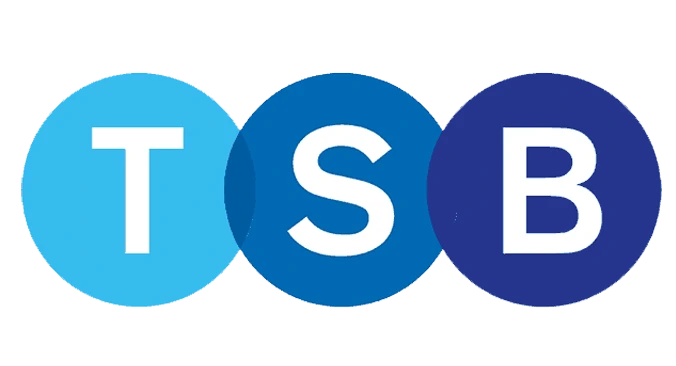Multi Cloud Solutions Architect Master’s Program
Fill the form below and a Learning Advisor will get back to you.

About This Course
The Multi Cloud Solutions Architect Master’s Program by Datavalley is a comprehensive and advanced training program designed to equip aspiring professionals with the expertise and skills needed to excel in the cloud computing domain. This program focuses on the three major cloud service providers – AWS, Azure, and GCP, offering a holistic approach to cloud architecture and development. Through hands-on projects, real-world simulations, and expert-led training, participants will learn how to design, deploy, and manage cloud solutions across multiple platforms, making them adept at harnessing the full potential of the cloud to drive innovation and business success. Our experienced professionals will guide you through the course, providing feedback and support to ensure that you are fully prepared for the Cloud Certification’s.
AWS Certified Solutions Architect Course Syllabus
Fill out a form, and get PDF curriculum delivered straight to your inbox. Accelerate your learning journey on our platform
Foundation for Cloud Computing
LIVE TRAINING
Learning Objective: Learners will acquire a foundational understanding of Cloud Computing, including its key concepts, models, and benefits. Additionally, they will develop essential skills in Linux, enabling them to effectively operate and optimize cloud-based systems, setting the stage for more advanced cloud-related studies and practical applications.
Course Content
- Introduction to Cloud Computing
- Why Cloud Computing
- What is Cloud Computing
- Types of Cloud Computing
- Types of Service Models
- Benefits of Cloud Computing
- Which cloud should I use
- Which cloud costs more
- Exploring Cloud Services
- Linux Operating System and Unix Programming
- Introduction to Linux
- File Management
- Files and Processes
- Introduction to Shell Scripting
- Conditional, Looping Statements, and Functions
- Text Processing
- Scheduling Tasks
- Advanced Shell Scripting
- Database Connectivity
- Linux Networking
Python for cloud
LIVE TRAINING
Learning Objective: By the course’s end, learners will develop essential Python skills for cloud computing, enabling them to automate cloud resources, integrate with AWS, Azure, and Google Cloud, and build efficient cloud applications. Through hands-on exercises, learners will gain valuable experience in optimizing cloud efficiency and effectively managing cloud resources using Python.
Course Content
- Fundamentals of Python
- Introduction to Python
- Python Data Structures
- Object-Oriented Programming (OOP) in Python
- File Handling in Python
- Python for Cloud Development
- Python Libraries for Cloud Development
- Handling JSON and API Calls
- Deploying Python Applications on Serverless Architecture
- Integrating Python with Cloud Services
- Building Web Applications with Python for the Cloud
- Data Processing with Python on Cloud Platforms
- Python for Cloud Security and Performance
- Security Best Practices in Cloud Architectures
- Scalability and Performance Optimization for Cloud Solutions
- AI/ML Services Integration with Python for Cloud Applications
- Advanced Python Topics
- Serverless Deployment and Management
- Cloud Infrastructure as Code with Python
- Cloud Monitoring and Logging Strategies
DevOps Foundation Course
LIVE TRAINING
Learning Objective: In the DevOps Foundation course, participants will gain a comprehensive understanding of DevOps principles, CI/CD, containerization, IaC, configuration management, monitoring, and security. Real-world case studies and best practices will enhance their skills to drive collaboration and automation, ensuring efficient software development and deployment.
Course Content
- Version Control Tools
- Git
- CI/CD Tools
- Docker
- Docker Streaming
AWS Solutions Architect Professional
LIVE TRAINING
Learning Objective:The AWS Solutions Architect course aims to equip participants with the skills to design and deploy scalable, cost-effective solutions on AWS. By understanding AWS services, architectural principles, and best practices, learners will optimize performance and security in cloud environments. Successful completion prepares participants for AWS Certified Solutions Architect certification, enabling them to excel in cloud architecture roles.
Course Content
- Introduction to Cloud Computing & AWS
- What is Cloud Computing?
- Cloud Service and Deployment Models
- How AWS is the leader in the cloud domain?
- Various cloud computing products offered by AWS
- AWS Account Creation & Free Tier Limitations Overview
- Introduction to AWS S3, EC2, VPC, EBS, ELB, AMI
- AWS architecture and the AWS Management Console, virtualization in AWS
- What is Auto-scaling?
- Exploring AWS Compute Services
- EC2 Instance Launch and Termination
- Instance Types and Pricing Models
- Amazon Machine Images (AMI)
- Networking in EC2
- Enhanced Networking
- Monitoring
- High Availability Approaches for EC2
- EC2 Migration
- Dive into AWS Storage Services
- Amazon Simple Storage Service (S3)
- Amazon Elastic Block Store (EBS)
- Elastic Block Store (Volume) and Instance Store
- Encryption
- Object Replication
- Data Migration in S3
- Monitoring
- Amazon EFS
- AWS Storage Gateway
- Amazon FSx
- Identity & Access Management on AWS
- Root Account VS IAM User
- Create IAM User & Attach Policy
- Create User Groups & Attach Policy
- Creating Custom IAM Policies
- IAM Password Policies
- Multi-Factor Authentication(Root User & IAM User)
- Roles
- IAM Credential Reports
- Security Options
- Cloud Trails
- Trusted Advisor
- Cloud Front (S3 Transfer Acceleration)
- Networking & Content Delivery Services
- Amazon Virtual Private Cloud (VPC)
- Introduction about Subnet & Create Subnet
- Subnets, Route Tables, and Security Groups
- Internet Gateways & NAT Gateways
- Network Access Control List (NACL)
- Elastic Load Balancing (ELB)
- Amazon CloudFront
- Content Delivery Networks (CDNs)
- DNS Management with Amazon Route 53
- AWS Direct Connect and VPN Connectivity
- AWS Global Accelerator
- Amazon API Gateway
- Network Security Best Practices
- Analytic Services
- Amazon Redshift and Data Warehousing
- Amazon Athena and Interactive Querying
- Amazon Kinesis and Real-time Data Streaming
- Amazon EMR and Big Data Processing
- AWS Glue and Data Cataloging
- Amazon OpenSearch
- Amazon QuickSight and Business Intelligence
- Machine Learning with Amazon SageMaker
- Databases Management with AWS
- Introduction of Database
- Types of AWS Databases
- Types of AWS Services in AWS Databases
- Launching a RDS Instances (MySQL)
- Multi Availability Zone For RDS Instances
- Read replicas For RDS Instances
- Connect RDS Instance with MYSQL Workbench
- DynamoDB
- Management
- AWS Organizations
- Amazon CloudWatch
- AWS CloudTrail
- AWS OpsWorks
- AWS CloudFormation
- AWS CodeCommit
- AWS CodePipeline
- AWS Config
- AWS Systems Manager
- AWS Cost Management Services
- AWS Backup
- Application Integration Services
- Simple Notification Service
- Simple Email Service
- Simple Queue Service
- AWS Calculator
- Amazon Event Bridge (Amazon CloudWatch Events)
- Cloud Formation
- Service Quota
- AWS Step Functions
- Monitoring Services
- Introduction to CloudWatch
- CloudWatch metrics and namespaces
- CloudWatch architecture
- dashboards in CloudWatch
- CloudWatch alarms
- CloudWatch logs
- CloudWatch pricing
- CloudWatch design patterns
- Introduction to CloudTrail
- tracking API usage
- Automation and Configuration management
- What is AWS Lambda?
- How is Lambda different from EC2?
- Benefits and limitations of Lambda
- How does Lambda work?
- Use cases of Lambda, Lambda concepts
- Integrating S3 with Lambda
- What is Elastic Beanstalk, how does Beanstalk work?, Beanstalk concepts, Beanstalk pricing
- What is Configuration Management?
- What is AWS OpsWorks?, AWS OpsWorks benefits
- CloudFormation vs OpsWorks, services in OpsWorks, AWS OpsWorks Stacks, OpsWorks pricing.
- AWS Migration
- AWS Backup
- What is Cloud migration?
- Why is migration important?
- Migration process in AWS, the 6 R’s migration strategy
- Virtual machine migration, migrating a local VM onto the AWS cloud
- Migrating databases using Database Migration Service (DMS)
- Migrating a local database to RDS
- Migrating an on-premises database server to RDS using DMS, and other migration services.
- AWS DataSync (EFS to EFS)
- AWS Snow (Theory)
- AWS Billing and Cost Management
- AWS Budgets
Project-1
LIVE TRAINING
Learning Objective:By the end of the AWS course, participants will have a solid understanding of AWS services, architecture, and best practices. They will gain practical experience in deploying and managing cloud resources, implementing security measures, and optimizing performance. The Project will be to design and deploy a scalable web application on AWS, demonstrating their proficiency in cloud computing and AWS management.
Course Content
Project in progress….
Azure Administrator Associate AZ-104
LIVE TRAINING
Learning Objective: The Azure Administrator Associate (AZ-104) course aims to equip participants with essential skills to excel as Azure Administrators. Gain deep knowledge of Azure services, tools, and tasks for resource deployment, monitoring, and troubleshooting. Develop proficiency in security implementation, performance optimization, and efficient cloud management. Prepare for the AZ-104 exam and succeed in Azure administration roles.
Course Content
- Introduction to Microsoft Azure
- Introduction to cloud computing
- What is cloud computing?
- Types of cloud computing
- What is Microsoft Azure?
- Microsoft Azure Services
- Creating Microsoft Azure Account
- Accessing Microsoft Azure Platform
- Introduction to ARM & Azure Storage
- Azure Resources and Azure Subscriptions
- Microsoft Azure Resource Manager
- What is Azure Storage Account?
- Creating a Storage account
- Creating and Configuring a Bob storage
- Azure File Storage
- Creating a File Share
- Connecting File Share to windows
- Connecting File Share to Linux
- Introduction to Azure storage
- Azure Table Storage
- Azure Queue Storage
- Azure Storage Explorer
- Azure Shared Access Signature (SAS)
- Azure Databox
- Azure Storage Replication
- Data Replication Options
- Azure Import/Export Service
- Azure Virtual Machines – I
- What is a Virtual Machine?
- Types of Virtual Machines
- Creating Linux Virtual Machine (Password, SSH methods)
- Launching a Linux VM using Putty (Password, SSH methods)
- Windows Virtual Machine Creation & Launch Demo
- Data Disks in Virtual Machines
- Managed & Unmanaged Disks
- What are Virtual Machine Scale Sets?
- Creating a Virtual Machine Scale Set
- Virtual Machine Availability Sets
- Automating Deployment of Virtual Machines
- Azure Virtual Machines – II
- What are Custom Images?
- Creating a Custom Image from Virtual Machine
- Creating a Virtual Machine from Custom Image
- Backing up an Virtual System
- Restore a Backup
- New Virtual Machine from Backup
- Azure Site Recovery
- Azure App and Container services
- App Service Web App for Containers
- App Service Plan
- Networking for an App Service
- Deployment Slots
- Container Image
- Azure Kubernetes Service
- Azure Container Registry
- Azure Networking – I
- What is a VNet?
- Creating a Virtual Network Demo
- VNet Peering
- VNet to VNet Peering Demo
- VNet to VNet Connection Gateway
- VNet to VNet Gateway Demo
- IP Addresses
- IP Address Allocation
- Assign Static IP Address Demo
- Azure VNet Routing
- Create Route Table Demo
- Azure Network Interface
- Create and Attach NIC Demo
- Azure Subnets
- Azure DNS
- Create DNS Zones Demo
- Private DNS
- Network Security Group
- Add NSG Demo
- Azure Networking – II
- Azure Load Balancer
- Internal Load Balancer Demo
- Public Load Balance Demo
- Azure Application Gateway
- Application Gateway Demo
- Azure Front Door
- Azure Front Door Demo
- Azure Traffic Manager
- Azure Traffic Manager Demo
- Azure Firewall
- Azure Bastion
- Azure Network Watcher
- VPN Gateway
- Azure Site to Site Connection
- Azure Site to Site Connection Demo
- Azure Express Route
- Azure Express Route Components
- Authentication and Authorization in Azure using RBAC
- Identity and Access Management in Azure
- Role-Based Access Management (RBAC)
- Role Definitions
- Role Assignment in Azure Resources
- Azure Users & Groups
- RBAC Policies
- Microsoft Azure Active Directory
- Azure Active Directory (Azure AD)
- Windows AD vs Azure AD
- Azure AD Users
- Azure AD Groups
- Azure AD Domains
- Azure AD Tenants
- Authentication Options
- Azure AD Connect
- Self-Service Password Reset (SSPR)
- Multi-Factor Authentication (MFA)
- Resource Locks
- Azure Monitoring
- Azure Monitor
- Azure Metrics
- Azure Metrics Demo
- Azure Log Analytics
- Alerts and Actions
- Alerts and Actions Demo
- Application Insights
- Backup Reports
- Backup Reports Demo
Project 2
LIVE TRAINING
Learning Objective: By the end of the Azure Administrator Associate course, participants will gain essential skills in Azure environment management, core services understanding, and security implementation. The Project will involve deploying and configuring a virtual machine on Microsoft Azure, demonstrating effective resource management and secure cloud operations.
Course Content
Project in progress….
Azure Solutions Architect Expert AZ-305
LIVE TRAINING
Learning Objective: The Azure Solutions Architect Expert (AZ-305) course aims to equip participants with advanced skills to become certified Azure Solutions Architects. Learn to design and implement robust solutions on Azure, covering complex architectures, security, performance, and scalability. Prepare for the AZ-305 exam and excel in cloud architecture roles to drive successful projects on Microsoft Azure.
Course Content
- Introduction to Microsoft Azure
- Understanding Cloud Computing and Azure
- Azure Portal
- Azure CLI
- Azure PowerShell
- Introduction to ARM and Azure Storage
- Azure Resources & Subscriptions
- Azure Resource Manager
- Managing Azure Resources
- Azure Tags
- Azure Storage Account & its types
- Azure Blob Storage
- Azure Content Delivery Network (CDN)
- Azure Files Storage
- Azure File Sync
- Introduction to Azure Storage
- Azure Table Storage
- Azure Queue Storage
- Azure Storage Explorer
- Azure Shared Access Signature (SAS)
- Azure Databox
- Azure Storage Replication
- Data Replication Options
- Azure Import/Export Service
- Azure Virtual Machines
- Azure Virtual Machines
- Data Disks in Azure
- Azure VMs & Interfaces
- ARM templates
- VHD templates
- Custom Images of Azure VM
- Virtual Machine Scale Sets
- Virtual Machine Availability Sets
- Azure App and Container Services
- App Service Web App for Containers
- App Service plan
- Networking for an App Service
- Deployment slots
- Container image
- Azure Kubernetes Service
- Azure Container Registry
- Azure Networking
- Azure Virtual Networks
- Azure Vnet Components
- IP Address – Public & Private IPs
- Azure Vnet Subnets
- Azure Network Interface Cards (NIC)
- Network Security Group (NSG)
- Route Tables
- Service Tags
- Azure DNS
- Private DNS
- Azure Networking II
- Application Gateway
- Azure Front Door Service
- Azure Traffic Manager
- Application Security Groups
- Azure Load Balancers
- Azure Firewall
- Azure Bastion
- Network Watcher
- Azure Express Route
- Express Route Circuits
- Express Route Peering
- Authentication and Authorization in Azure using RBAC
- Identity and Access Management in Azure
- Role Based Access Management (RBAC)
- Role Definitions
- Role Assignment in Azure Resources
- Azure Users & Groups
- RBAC Policies
- Microsoft Azure Active Directory
- Azure Active Directory (Azure AD)
- Windows AD Vs Azure AD
- Azure AD Users
- Azure AD Groups
- Azure AD Domains
- Azure AD Tenants
- Authentication Options
- Azure AD Connect
- Self Service password Reset (SSPR)
- Multi Factor Authentication (MFA)
- Resource Locks
- Azure Monitoring
- Azure Monitor
- Azure Metrics
- Log Analytics
- Alerts and actions
- Application Insights
- Backup reports
- Recovery Services Vault
- Backing Up Azure Virtual Machines
- VM Backup Policies
- Restoring Azure Virtual machines
- Multi-factor Authentication (MFA)
- MFA Fraud Alerts
- MFA Bypass Options
- MFA Trusted IPs
- MFA Verification Methods
- Azure Key Vault
- Azure AD Managed Identities
- Azure AD Application Management
- Migration in Azure
- Understanding VM migration
- Azure Migrate
- Azure Site recovery
- Server Assessment
- Server Migration
- Azure Data Platform I
- NoSQL and NoSQL Database
- Cosmos DB
- Multiple APIs and Data Models
- Request Units
- Request Unit Calculator
- Achieving Elastic Scale
- Partition Key
- Cross-partition Queries
- Replication
- Turnkey Global
- Distribution
- Turnkey Global Distribution
- Replication and Consistency
- Consistency Levels
- Document Database
- Cosmos DB Resource Model
- Resource Properties, Self-links, and URLs
- Azure Data Platform II
- Data Migration Tool
- Rich Query with SQL
- SQL Operators and Functions
- Client Development
- Indexing Policies
- Users, Permissions, and Resource Tokens
- Server-side Programming Model
- Triggers
- User-defined Functions (UDFs)
- Table API
- Cosmos DB Graph Database
- Vertices and Edges
- Populating the Graph
- Bi-directional Relationships
- Writing Gremlin Queries
- Azure Table Storage
Project-3
LIVE TRAINING
Learning Objective: By the end of the Azure Solutions Architect Expert course, participants will excel in designing and implementing robust solutions on Microsoft Azure. Learners will involve in Project that architecting a complex, multi-tier cloud application with security, scalability, and high availability considerations. Participants will showcase proficiency in utilizing diverse Azure services and best practices to deliver efficient and reliable cloud solutions for real-world business needs.
Course Content
Project in progress….
Google Professional Cloud Architect
LIVE TRAINING
Learning Objective: The Google Professional Cloud Architect course aims to certify participants as skilled Google Cloud Architects. Develop expertise in designing and deploying robust cloud solutions on the Google Cloud Platform. Gain insights into complex architectures, optimize performance, and ensure security. Prepare for the Professional Cloud Architect certification exam and excel in cloud architecture roles with practical experience.
Course Content
- Introduction to Google Cloud
- Understanding the fundamentals of Google Cloud Platform
- The Google Global infrastructure
- Products for storage, compute, networking, Machine Learning, and more
- Availability zones
- Different projects running on the GCP infrastructure, including Google projects
- Google Cloud Services
- Introduction to Google Cloud services
- Managing Google services using command-line tools, app, and console
- Installing and configuring SDK
- Deploying Cloud Shell for GCP environment management
- Deploying Gsutil
- Google Computing Services
- Understanding Google computing services
- Creating and managing virtual machines in Google Cloud
- Launching VMs on-demand using Google Compute Engine
- Choosing the right computing solutions based on the workload like memory or CPU
- Important actions with Compute Engine
- Balancing the load
- Google Storage Services
- Various storage services offered with Google Cloud
- The process of storing and retrieving data
- Rich content management
- Hosting a website
- Choosing the right storage options
- Integrating on-premises with the cloud storage environment
- Nearline and Coldline storage
- Cloud Datastore
- Managing cloud storage using Gsutil
- Google Cloud APIs
- Deploying Google Cloud for developing applications and for debugging and monitoring purposes
- Choosing the right data storage for application data
- Automating infrastructure
- Managing the API
- Cloud source
- Functions and special APIs
- Implementing and configuring Cloud Launcher and Deployment Manager
- Application deployment using Cloud Engine
- Google Networking Services
- Introduction to Google networking
- Setting up the Google network
- Connecting various Google Cloud Platform resources
- Isolation using firewalls and network policies
- Creating and managing of Virtual Private Network
- Working with cloud routers and interconnecting networks
- IAM & Security Services
- Different security and identity and access management (IAM) services
- Various roles in IAM
- Creating and managing Google resources permissions
- IAM APIs
- The creation of custom roles
- Sharing resources and isolation
- Deploying penetration testing, auditing, and security controls
- Migrating to Google Cloud
- Understanding how to migrate to Google Cloud
- Various criteria to be considered
- Choosing the right options as per the specific needs
- Managing a hybrid cloud model
- Complete migration from the on-premises model to the cloud
- Choosing an automation framework for resource provisioning
Project-4
LIVE TRAINING
Learning Objective: By the end of the Google Professional Cloud Architect course, participants will demonstrate advanced abilities to design scalable cloud solutions on Google Cloud Platform. The project involves architecting a comprehensive cloud infrastructure for a modern e-commerce application, emphasizing security, performance, and cost optimization. Participants will showcase proficiency in utilizing diverse Google Cloud services and best practices to deliver a resilient and high-performing cloud solution aligned with real-world business requirements.
Course Content
Project in progress….
Empowering Career
LIVE TRAINING
Learning Objective: Equip participants with the essential soft skills, interview techniques, and career preparation strategies needed to excel in their professional journey. By the end of the program, learners will be confident communicators, well-prepared for interviews, and equipped with the tools to navigate their career paths with success.
Course Content
- Soft Skills Training
- Career Preparation
- Interview Preparation
Tools Covered




























Job market overview

Ready to take the next step in your career as an Cloud Architect?
Based on the projected growth and value of the global Cloud Computing Market, becoming a Cloud Architect could be a highly promising and rewarding career move. As a Cloud Architect, taking the next step in your career is an opportunity to ride the wave of the rapidly expanding global Cloud Computing Market. With the market size projected to reach $1,240.9 billion by the end of 2027, there has never been a more exciting time to advance your career in this field.
As organizations across industries continue to embrace cloud technologies to drive innovation, scalability, and cost-effectiveness, skilled Cloud Architects are in high demand. Your role as a Cloud Architect will be pivotal in designing and implementing cloud-based solutions that align with business objectives and ensure seamless integration with existing infrastructure.
With the Cloud Computing Market growing at a remarkable CAGR of 17.9%, staying ahead of the curve as a Cloud Architect means continuously upgrading your skills and expertise. Acquiring in-depth knowledge of leading cloud platforms such as AWS, Azure, and Google Cloud will open doors to a wide range of opportunities with top-tier companies around the globe.
As you progress in your career, you’ll be entrusted with architecting sophisticated cloud environments, optimizing performance, and ensuring robust security measures. Your expertise will empower businesses to leverage the full potential of cloud technologies, unlocking new levels of productivity and innovation.
Additionally, as the market expands, there will be increased demand for Cloud Architects with specialized skills in areas like cloud-native application development, serverless computing, and multi-cloud strategy. Embracing emerging trends and obtaining relevant certifications will position you as a sought-after expert in the ever-evolving landscape of cloud computing.
The journey as a Cloud Architect promises rewarding challenges and exciting opportunities to shape the future of cloud infrastructure. Embrace the growth in the Cloud Computing Market and take the next step in your career to make a lasting impact in the digital transformation journey of organizations worldwide.
What you will learn
By the end of this course, you should be able to design and deploy highly available and fault-tolerant systems on Multi-Cloud, and be able to use Cloud services to implement secure, scalable, reliable, performance optimized and cost-effective architectures.
Course Format
- Live classes
- Hands-on trainings
- Mini-projects for every module
- Recorded sessions (available for revising)
- Collaborative projects with team mates in real-world projects
- Demonstrations
- Interactive activities: including labs, quizzes, scenario walk-throughs
What this course includes
- 200+hrs of live classes
- Collaborative projects
- Slide decks, Code snippets
- Resume preparation from the 2nd week of course commencement
- 1:1 career/interview preparation
- Soft skill training
- On-call project support for up to 3 months
- Certificate of completion
- Free access to our exam engines
Our students work at












Prerequisites
- CS/IT degree or prior IT experience is highly desired
- Basic programming and cloud computing concepts
Why Take Course With Us?
- Project-Ready, Not Just Job-Ready!
By the time you complete our program, you will be ready to hit the ground running and execute projects with confidence.
- Authentic Data For Genuine Hands-On Experience
Our curated datasets sourced from various industries, enable you to develop skills in realistic contexts, tackling challenges in your professional journey.
- Personalized Career Preparation
We prepare your entire career, not just your resume. Our personalized guidance helps you excel in interviews and acquire essential expertise for your desired role.
- Multiple Experts For Each Course
Multiple experts teach various modules to provide you diverse understanding of the subject matter, and to benefit you with the insights and industrial experiences.
- On-Call Project Assistance After Landing Your Dream Job
Get up to 3 months of on-call project assistance from our experts to help you excel in your new role and tackle challenges with confidence.
- A Vibrant and Active Community
Get connected with a thriving community of professionals who connect and collaborate through channels like Discord. We regularly host online meet-ups and activities to foster knowledge sharing and networking opportunities.
Course Completion Certification

FAQs
Upfront Payment
32% off
Pay upfront and save 32% on tuition fee
INR 85,000
INR 58,000
Fill the form below and a Learning Advisor will get back to you.
Monthly Payment
20% off
Pay monthly and save 20% on tuition fee
INR 10,000
Total up to 60,000
Fill the form below and a Learning Advisor will get back to you.
Scholarship
70% off
Avail upto 70% Scholarship
Fill the form below and a Learning Advisor will get back to you.
Learning Objectives
Target Audience
- Those aspiring to become proficient in AWS architecting and advance their career in cloud computing
- For solutions architects, solution-design engineers, and developers seeking an understanding of AWS architecting
- Professionals interested in designing and deploying secure and reliable cloud-based solutions
- Individuals preparing to take the AWS Solutions Architect certification exam
Fill out a form, and get PDF curriculum delivered straight to your inbox. Accelerate your learning journey on our platform


